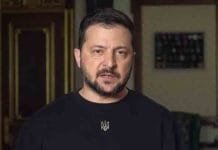INVC NEWS
Johannesburg : In a surprising turn of events, it has been announced that Russian President Vladimir Putin will not attend the upcoming BRICS (Brazil, Russia, India, China, South Africa) summit scheduled to take place in Johannesburg, South Africa from 22nd to 24th August. Instead, Russia’s Foreign Minister, Sergei Lavrov, will represent the country in President Putin’s place. This decision comes amidst mounting tensions surrounding the International Criminal Court’s warrant against President Putin in relation to the attack on Ukraine and alleged war crimes.
The Delicate Dilemma Faced by South Africa
The host country, South Africa, found itself in a challenging situation with regard to President Putin’s participation in the BRICS summit. The International Criminal Court’s warrant against the Russian President made his presence in Johannesburg a potential legal risk. If President Putin had attended the summit, he could have faced the possibility of arrest and extradition to face charges at the ICC.
The Warrant and Allegations Against President Putin
The International Criminal Court issued the warrant against President Putin following allegations of his involvement in the conflict in Ukraine and accusations of war crimes committed by Russian forces. The situation has garnered international attention and condemnation, leading to a diplomatic dilemma for South Africa as the host nation.
An Agreement Reached
In light of the sensitive situation, South Africa and the Russian government came to an agreement to ensure President Putin’s safety and avoid any diplomatic turmoil during the BRICS summit. As a result of this understanding, the South African government made the announcement about President Putin’s absence, with Foreign Minister Sergei Lavrov stepping in to represent Russia at the summit.
Impact on BRICS Summit Discussions
The absence of President Putin at the BRICS summit is likely to have a significant impact on the discussions and agenda of the event. As a key member of the BRICS alliance, Russia’s role and influence in shaping regional and global policies have been considerable in the past. With President Putin’s absence, the summit may miss out on valuable insights and perspectives that Russia brings to the table.
The Role of BRICS in Global Politics and Economy
BRICS is an acronym for an alliance of five major emerging national economies: Brazil, Russia, India, China, and South Africa. The BRICS countries have a combined population of more than 3 billion people and account for approximately 42% of the world’s population. Additionally, they contribute about 23% of global GDP and hold significant political and economic sway on the world stage.
Strengthening Cooperation and Solidarity
The primary objective of the BRICS summit is to foster cooperation and solidarity among the member countries on various issues concerning geopolitics, economics, and sustainable development. The annual summit provides an opportunity for leaders to address shared challenges and promote common interests while seeking mutually beneficial solutions.
Addressing Global Challenges
One of the crucial aspects that BRICS focuses on during its summits is addressing global challenges and finding joint solutions. These challenges include climate change, cybersecurity, terrorism, poverty, and healthcare, among others. The member countries recognize the importance of collective efforts to tackle such issues for the greater good of humanity.
Geopolitical Dynamics and Regional Concerns
Each member country of BRICS brings its unique geopolitical dynamics and regional concerns to the table. These diverse perspectives create a fertile ground for constructive dialogue, where leaders can engage in frank discussions on regional conflicts and security issues. Russia, in particular, has played a crucial role in shaping geopolitical dynamics, and its absence at the summit could impact the depth of discussions on regional matters.
The Influence of International Criminal Court
The International Criminal Court (ICC) is an independent judicial body established to address grave crimes that violate international law, such as genocide, war crimes, and crimes against humanity. Its issuance of a warrant against President Putin adds a layer of complexity to international relations and highlights the significance of accountability in the face of alleged atrocities.
The Future of BRICS without President Putin
The BRICS alliance faces an uncertain future without President Putin’s active involvement in the summit. Russia’s unique position in global politics and its contributions to BRICS discussions have been noteworthy. While Foreign Minister Sergei Lavrov can represent Russia’s interests, President Putin’s absence may lead to nuanced shifts in the alliance’s dynamics and priorities.
Conclusion
The decision of Russian President Vladimir Putin not to attend the BRICS summit in South Africa has generated considerable interest and concern worldwide. The delicate dilemma faced by South Africa regarding President Putin’s potential arrest, given the International Criminal Court’s warrant, led to the announcement of his absence. As the summit approaches, the impact of President Putin’s non-participation on the discussions and outcomes remains to be seen.
The BRICS alliance continues to play a vital role in shaping global politics and economy, and the annual summit provides a crucial platform for member countries to address shared challenges and foster cooperation. However, the absence of President Putin may create a void in the discussions, given Russia’s prominent geopolitical position and influence.
As the world watches the events unfold during the BRICS summit, it is evident that international relations and geopolitical dynamics are continually evolving. The outcome of this summit could have lasting effects on the alliance’s future and its ability to address global challenges effectively.
















